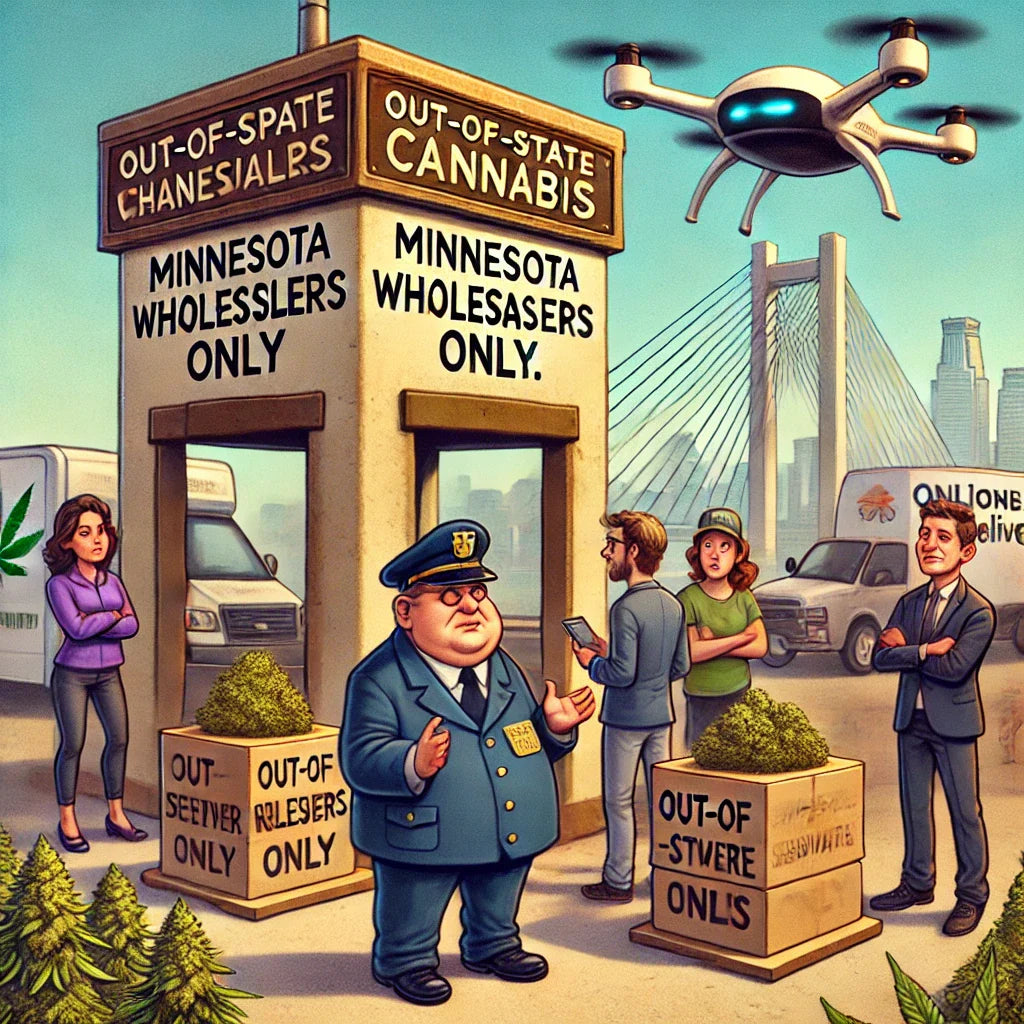The intoxicating hemp market in the U.S. is booming—but just how big is it? Unlike regulated medical and adult-use marijuana markets, which provide consistent monthly sales and tax revenue reports, the hemp industry lacks a clear and comprehensive data system. Instead, industry analysts and the USDA rely on static surveys that provide only partial insights. But there's a better way to track growth: tax data from states that regulate hemp-derived cannabinoid products.
A Fragmented Market with Rapid Growth
Assessing the true size of the hemp market is tricky. The USDA reported that in 2023, the wholesale value of hemp grown for extraction reached $172.6 million, up from $109.9 million in 2022 but still far below $298.1 million in 2021. However, this data is released only once a year and with significant delays. By the time we see 2024 numbers, we’ll be well into 2025.
To get a real-time look at market growth, we turn to the states that tax intoxicating hemp products and publish monthly revenue data.
Which States Tax Hemp-Derived Cannabinoids?
Only a handful of states currently impose specific taxes on intoxicating hemp products:
- Minnesota
- Louisiana
- Tennessee
- West Virginia (limited data available)
Focusing on the first three states with reliable tax reports, we can see significant growth trends emerging.
State-by-State Market Growth
Monthly tax data provides a clearer picture of how these markets are expanding. Here’s a look at the average month-over-month growth in each state since July 2023:
| State | Monthly Growth | Annual Growth Rate |
|---|---|---|
| Minnesota | 5.87% | 70.4% |
| Tennessee | 4.99% | 59.8% |
| Louisiana | 2.16% | 25.9% |
Tennessee has the largest market and highest per capita sales, bringing in $245.4 million from December 2023 to November 2024. This translates to $40.50 per adult resident annually.
Minnesota, known for pioneering hemp-infused beverages and early regulatory frameworks, reported $145.1 million in total hemp consumable sales from October 2023 to September 2024. Louisiana, by contrast, has a much smaller market and slower growth rate.
Why Are Some Markets Thriving More Than Others?
A state’s hemp market size is shaped by product variety, potency limits, and accessibility. Here’s how the three states compare:
- Tennessee: Offers the broadest range of products, including smokable and vaporizable hemp-derived cannabinoids. It also allows higher THC limits—up to 25mg per serving.
- Minnesota & Louisiana: Limit THC products to 5mg per serving and prohibit smokable/vaporizable hemp.
Consumer Choices and the Future of Regulation
As more states introduce hemp regulations alongside marijuana programs, consumers are faced with multiple options:
- Legal State-Regulated Hemp Products
- Licensed Medical or Recreational Marijuana Dispensaries
- Out-of-State Purchases
- The Illicit Market
Regulatory decisions don’t happen in a vacuum. If states impose strict product limits, consumers may simply shift their purchasing behavior—whether that means crossing state lines or buying from unregulated sources.
As legislators revisit hemp regulations in 2025, they must balance public safety, tax revenue potential, and consumer demand. The intoxicating hemp market is growing fast—states that embrace thoughtful regulation will be positioned to capture significant revenue while keeping consumers within legal channels.
Final Thoughts
The hemp-derived cannabinoid market is expanding rapidly, with states like Tennessee and Minnesota leading the charge. As more states refine their regulatory frameworks, the key question remains: Will they create a thriving legal market, or will restrictions push consumers elsewhere?
What do you think about the future of the hemp market? Share your thoughts below!






































